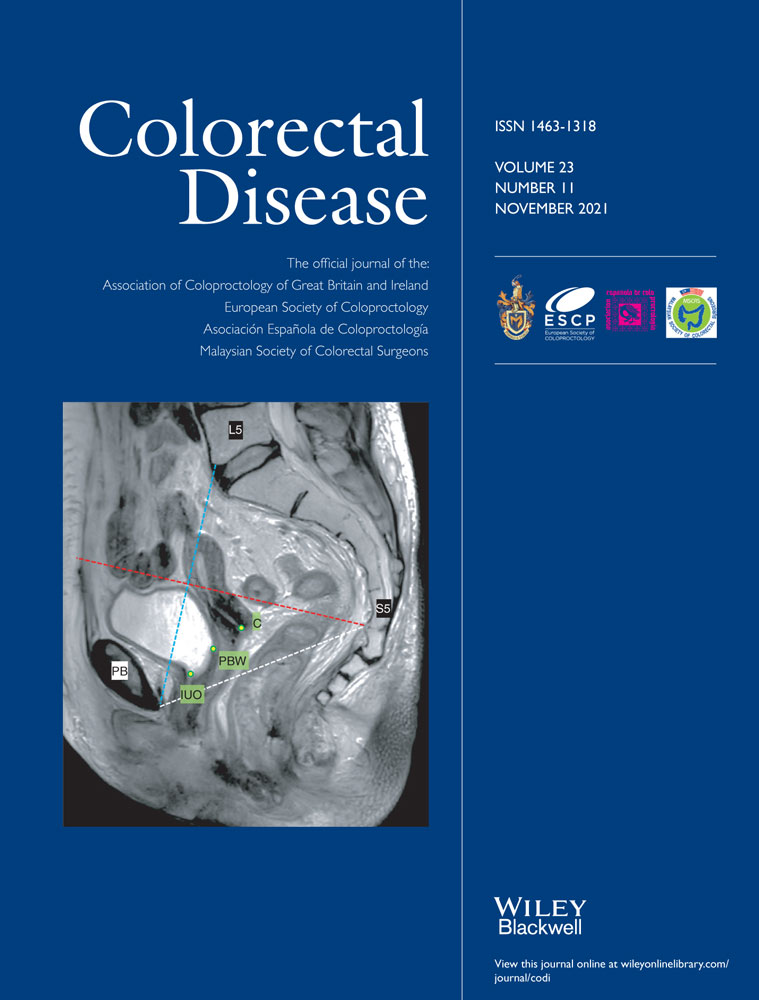An international assessment of the adoption of enhanced recovery after surgery (ERAS®) principles across colorectal units in 2019–2020
Funding information
Ethicon (part of Johnson & Johnson) provided funding for the project as part of a collaborative research agreement with the European Society for Coloproctology (ESCP). Support for third-party writing assistance for this article, provided by Hannah Brechka and Molly Atkinson, Costello Medical, UK, was funded by Ethicon in accordance with Good Publication Practice (GPP3) guidelines (http://www.ismpp.org/gpp3).
Abstract
Aim
The Enhanced Recovery After Surgery (ERAS®) Society guidelines aim to standardize perioperative care in colorectal surgery via 25 principles. We aimed to assess the variation in uptake of these principles across an international network of colorectal units.
Method
An online survey was circulated amongst European Society of Coloproctology members in 2019–2020. For each ERAS principle, respondents were asked to score how frequently the principle was implemented in their hospital, from 1 (‘rarely’) to 4 (‘always’). Respondents were also asked to recall whether practice had changed since 2017. Subgroup analyses based on hospital characteristics were conducted.
Results
Of hospitals approached, 58% responded to the survey (195/335), with 296 individual responses (multiple responses were received from some hospitals). The majority were European (163/195, 83.6%). Overall, respondents indicated they ‘most often’ or ‘always’ adhered to most individual ERAS principles (18/25, 72%). Variability in the uptake of principles was reported, with universal uptake of some principles (e.g., prophylactic antibiotics; early mobilization) and inconsistency from ‘rarely’ to ‘always’ in others (e.g., no nasogastric intubation; no preoperative fasting and carbohydrate drinks). In alignment with 2018 ERAS guideline updates, adherence to principles for prehabilitation, managing anaemia and postoperative nutrition appears to have increased since 2017.
Conclusions
Uptake of ERAS principles varied across hospitals, and not all 25 principles were equally adhered to. Whilst some principles exhibited a high level of acceptance, others had a wide variability in uptake indicative of controversy or barriers to uptake. Further research into specific principles is required to improve ERAS implementation.
CONFLICT OF INTEREST
H Taylor, C Tong and N-D Schmitz are employees of Johnson & Johnson and therefore did not participate in the survey.
Open Research
Data Availability Statement
All relevant data are within the paper and its Supporting Information files.




